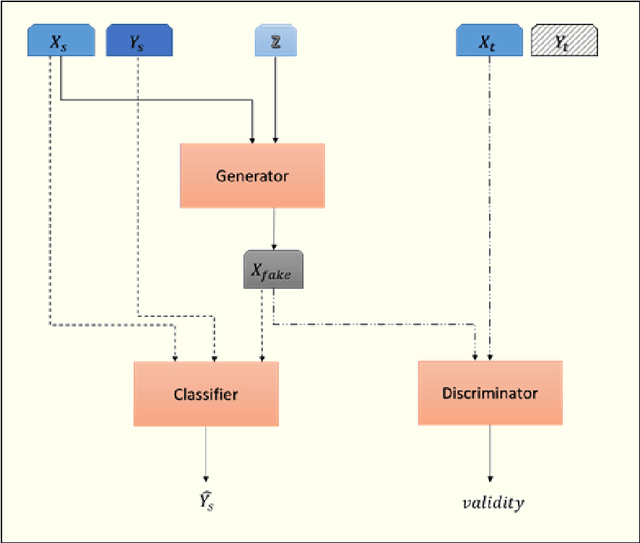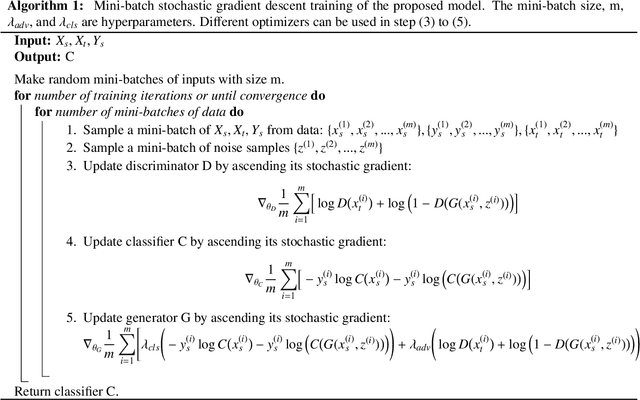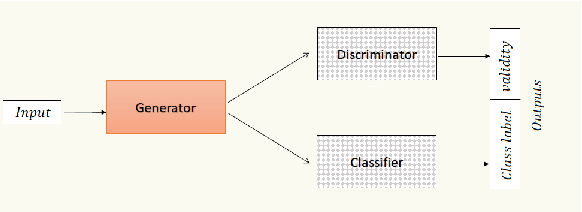Cross-Subject Transfer Learning in Human Activity Recognition Systems using Generative Adversarial Networks
Paper and Code
Mar 29, 2019



Application of intelligent systems especially in smart homes and health-related topics has been drawing more attention in the last decades. Training Human Activity Recognition (HAR) models -- as a major module -- requires a fair amount of labeled data. Despite training with large datasets, most of the existing models will face a dramatic performance drop when they are tested against unseen data from new users. Moreover, recording enough data for each new user is unviable due to the limitations and challenges of working with human users. Transfer learning techniques aim to transfer the knowledge which has been learned from the source domain (subject) to the target domain in order to decrease the models' performance loss in the target domain. This paper presents a novel method of adversarial knowledge transfer named SA-GAN stands for Subject Adaptor GAN which utilizes Generative Adversarial Network framework to perform cross-subject transfer learning in the domain of wearable sensor-based Human Activity Recognition. SA-GAN outperformed other state-of-the-art methods in more than 66% of experiments and showed the second best performance in the remaining 25% of experiments. In some cases, it reached up to 90% of the accuracy which can be obtained by supervised training over the same domain data.
 Add to Chrome
Add to Chrome Add to Firefox
Add to Firefox Add to Edge
Add to Edge